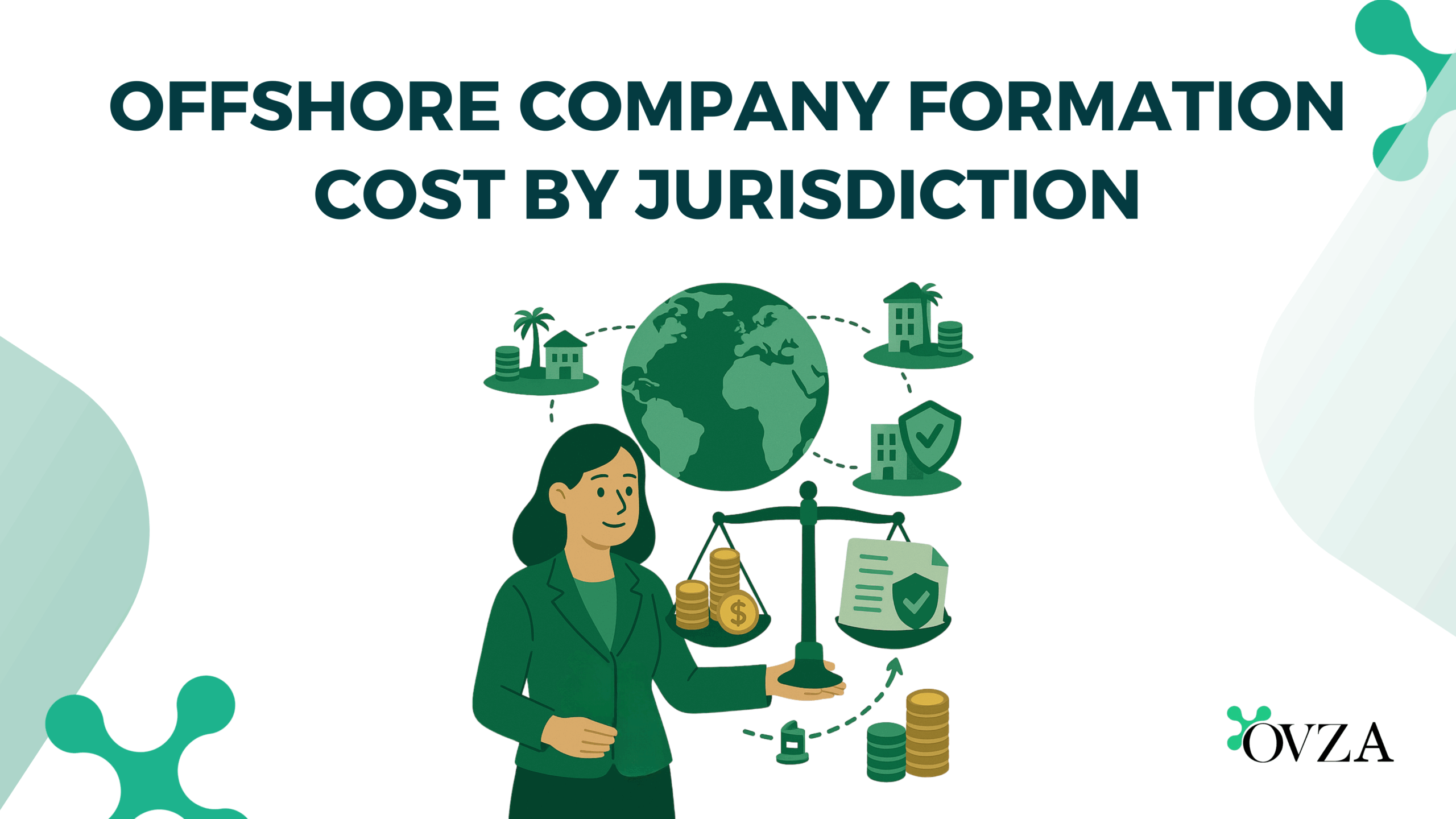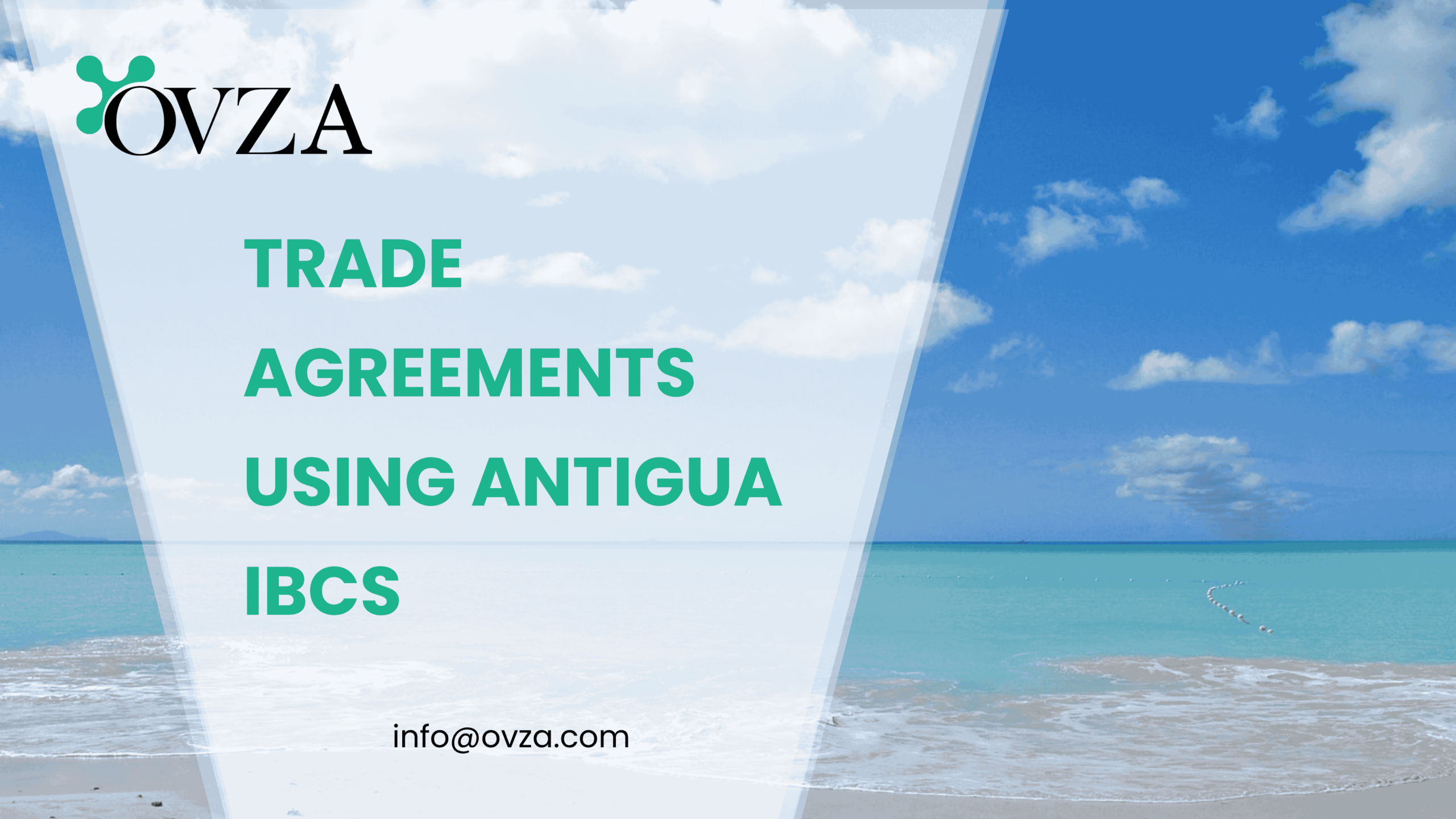The cost of offshore company formation depends on each jurisdiction’s legal and regulatory framework, not just service provider pricing. Statutory incorporation fees, compliance mandates, and legal obligations surrounding agents, offices, and reporting all contribute to the final cost borne by a company owner. This article explores how various offshore jurisdictions legally define and regulate incorporation-related costs, with a focus on International Business Companies (IBCs), Limited Liability Companies (LLCs), and other exempt entities.
- The Legal Basis for the Cost of Offshore Company Formation
- Statutory Obligations Impacting Cost
- Statutory Renewal and Maintenance Fees
- Nominee Services and Legal Cost Implications
- Global Compliance Standards and Their Effect the Cost of Offshore Company Formation
- Starting Formation Costs by Jurisdiction
- Conclusion
The Legal Basis for the Cost of Offshore Company Formation
Every jurisdiction has enacted legislation that establishes the legal grounds for incorporation costs. These fees are typically codified within the principal Companies Act or its supporting regulations. For example, in Belize, the International Business Companies Act, Chapter 270 specifies that incorporation requires a payment of a government fee, which varies based on authorized capital. The law also mandates the appointment of a licensed registered agent, whose service fees are not regulated by statute but must comply with licensing conditions issued by the International Financial Services Commission (IFSC).
In the British Virgin Islands, Section 235 of the BVI Business Companies Act (Revised 2023) sets out the incorporation and annual fees payable to the BVI Financial Services Commission. These are graduated based on the company’s share capital and filing structure. Additionally, the Companies Regulations require all entities to pay an annual fee to remain in good standing, regardless of whether the company engages in business activity.
Similarly, the Seychelles International Business Authority Act define incorporation and renewal fees explicitly, though actual amounts are often adjusted by subsidiary legislation or gazette notices issued by the Financial Services Authority (FSA).
Statutory Obligations Impacting Cost
Beyond the base registration fee, several statutory obligations indirectly raise the cost of offshore incorporation. These include:
- Registered Office Requirements: Most jurisdictions require offshore companies to maintain a local registered office. The cost of this office is dictated by local laws and agent licensing requirements.
- Economic Substance Compliance: Jurisdictions like the Cayman Islands, BVI, and Seychelles have implemented substance laws in compliance with OECD and EU requirements. While the law itself does not impose a fixed fee, compliance requires reporting, bookkeeping, and often additional legal review—creating ongoing financial burdens.
- Filing Obligations: In places like St. Lucia, the International Business Companies Act mandates an annual renewal and filing fee. Failure to comply results in late penalties or automatic strike-off, further increasing risk-adjusted compliance costs.
Statutory Renewal and Maintenance Fees
The cost of offshore company formation extends beyond the initial incorporation stage; maintaining legal good standing requires compliance with annual statutory renewal obligations. These obligations are defined by law in nearly all offshore jurisdictions and form a core component of a company’s long-term financial commitments.
Under Section 242 of the BVI Business Companies Act, for example, all companies must pay a fixed annual government fee based on their authorized share capital. The exact amounts are set out in the BVI Business Companies Regulations, and failure to meet these obligations results in late penalties or administrative strike-off. In such cases, the cost of offshore company formation can increase significantly due to restoration fees and reputational risk.
In Seychelles, the International Business Companies Act requires annual renewal with the Financial Services Authority (FSA). While the base government fee is relatively low—usually under USD 300—the legal requirement to maintain a licensed registered agent and office, both governed under the FSA Act, adds to the total cost. As a result, the real cost of offshore company formation in Seychelles is not limited to what is set out in the statute, but includes the bundled expenses needed to comply with regulatory audits and substance checks.
Belize provides another example. Following the IBC (Amendment) Act, 2023, all IBCs must complete annual renewals, and companies deemed tax resident must also submit financial statements. This introduces accounting and advisory expenses that, while not part of the official filing fee, are essential to remain compliant. Here again, the cost of offshore company formation is shaped by both statutory duties and evolving international standards.
Nominee Services and Legal Cost Implications
Nominee services, while optional, play a significant role in structuring offshore entities, especially in jurisdictions where privacy or legal substance are strategic concerns. Though not mandated by most company laws, nominee arrangements are often closely regulated and bring with them substantial legal and financial obligations.
In the Cayman Islands, for instance, nominee directorships must conform to the Companies Management Law (2020 Revision) and related AML regulations. While the fee for a nominee may be set by private agreement, legal responsibilities—such as due diligence, ongoing compliance monitoring, and internal recordkeeping—substantially increase the total cost of offshore company formation when such services are used.
In addition, nominee structures usually require the preparation of legally binding documents, including declarations of trust, powers of attorney, or indemnity agreements. These documents must often be notarized or apostilled, depending on the jurisdiction, adding further legal costs that are rarely reflected in published formation packages. As a result, clients pursuing nominee structures should anticipate a higher effective cost of offshore company formation, especially where multi-jurisdictional compliance is involved.
Global Compliance Standards and Their Effect the Cost of Offshore Company Formation
In recent years, the cost of offshore company formation has been increasingly influenced by global transparency and anti-avoidance initiatives. While local laws still define the core legal structure of incorporation and renewal, external frameworks such as the Financial Action Task Force (FATF) recommendations, the OECD’s Base Erosion and Profit Shifting (BEPS) project, and EU tax governance rules have significantly reshaped offshore regulatory environments.
One major area of change is the introduction of economic substance legislation, now required in many jurisdictions including the British Virgin Islands, Cayman Islands, Belize, and Seychelles. These laws compel companies engaged in relevant activities to establish local operations, maintain physical office space, and employ qualified personnel—factors that directly impact the cost of offshore company formation. Even for companies not engaged in relevant activities, the cost of proving “non-relevance” through legal filings and declarations often adds to annual expenses.
Furthermore, compliance with international beneficial ownership registers has become mandatory in many offshore jurisdictions. The legal requirement to disclose ownership, often through licensed agents, introduces advisory and compliance fees that form part of the actual formation and maintenance cost. These disclosure regimes—such as those introduced under the EU’s 5th Anti-Money Laundering Directive—are often accompanied by sanctions for non-compliance, increasing the financial and legal risk profile of offshore entities.
Starting Formation Costs by Jurisdiction
The table below outlines the starting cost of offshore company formation in select jurisdictions where we provide services. These figures include government filing fees and core incorporation support but exclude optional services like apostille, courier delivery, and accounting:
| Region | Jurisdiction | Registration Fees (USD) | Annual Fees (USD) |
| Africa | Seychelles | 595 | 590 |
| The Americas | Anguilla | 890 | 980 |
| Antigua and Barbuda | 1,600 | 750 | |
| Bahamas | 1,390 | 1,120 | |
| Belize | 990 | 945 | |
| British Virgin Islands | 1,500 | 1,350 | |
| Cayman Islands | 2,900 | 2,610 | |
| St. Kitts and Nevis | 1,470 | 1,390 | |
| St. Lucia | 1,850 | 1,600 | |
| St. Vincent & Grenadines | 1,110 | 970 | |
| Asia Pacific | Marshall Islands | 1,090 | 890 |
| Samoa | 840 | 755 | |
| Vanuatu | 1,400 | 900 |
Conclusion
The cost of offshore company formation is shaped not only by market rates but by a complex web of statutory fees, legal requirements, and international compliance standards. While some jurisdictions offer lower entry points, others impose more rigorous obligations that raise the total cost over time. Understanding these legal frameworks is essential for selecting the right jurisdiction and budgeting accurately—not just for incorporation, but for long-term corporate maintenance.
Disclaimer: The information provided on this website is intended for general reference and educational purposes only. While OVZA makes every effort to ensure accuracy and timeliness, the content should not be considered legal, financial, or tax advice.










